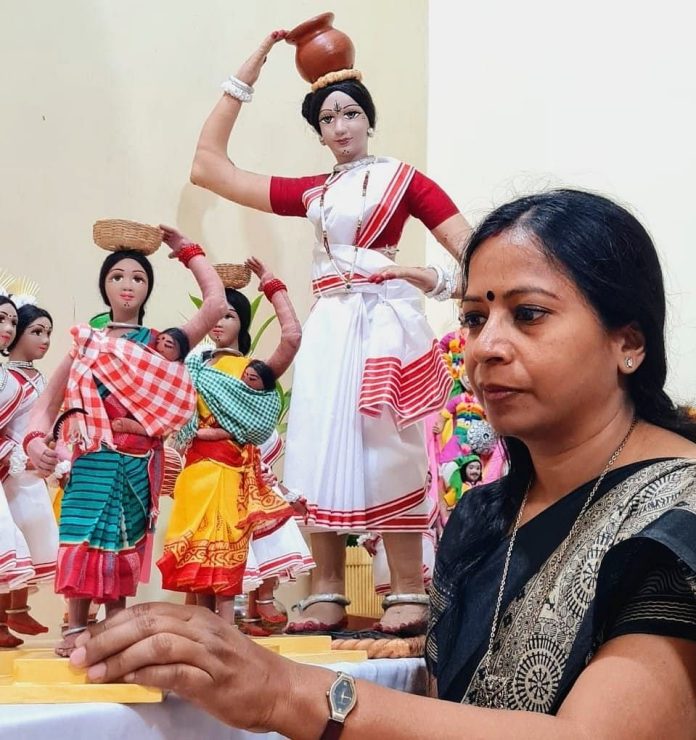
Shobha Kumari’s Eco-friendly Indian Dolls
Date:

Share post:
Srijan Handicrafts was founded, almost two decades before Prime Minister Narendra Modi launched the Make-in-India initiative on September 25, 2014. In 1993, an XII standard pass homemaker Shobha Kumari from Ranchi launched Srijan Handicrafts to popularise eco-friendly hand-made dolls made from clay, sawdust, and cloth. But it was in August 2019, when a member of Parliament from Ranchi Sanjay Seth visited her workspace, her efforts gained recognition. Yes, the Government of India, is proud of such initiatives run by women. Today, Srijan Handicrafts empowers thousands of women from marginal communities to earn a livelihood with artisan doll making.

Shobha, Skills, Strategies
Shobha Kumari was born in 1973. She was fond of making dolls and even made a Rajasthan doll for herself when she was only 13. Having mastered skills like sewing, embroidery, and knitting, one day many years later she set out to make a second doll. But, this time it would be with a Jharkhand attire and features of its community members. The doll looked so real, that it prompted Shobha to consider doll-making as a business.
Shobha’s entrepreneurial journey began after she learnt about the plight of a financially burdened woman in her social circle. She decided on one strategy – to train financially burdened women to make the dolls. She started just with one woman, and within few months established — Srijan Handicrafts.
The First Collection
The first batch of dolls was inspired by village scenes including a woman cutting crops while carrying her baby in a cloth around her waist, men cutting firewood, mahua sellers, women dancing Jhumar, a vendor with weighing scales, and so on. Shobha Kumari herself designed and developed every part of the doll with utmost precision.
After that numerous collections followed. Srijan Handicrafts, designed dolls to include a group of Meerabais, a wide-eyed bride, Rajasthani folk singers, bhangra dancers, Bharatnatyam dancers, Gujarati women and many others. They started selling the products door-to-door and through fairs and weekly haats (bazaars) in the city.
The dolls vary in sizes from two inches to five feet. Their price range is between rupees five hundred to rupees fifteen thousand. The dolls are sold individually as well as in groups.

Empowering Women
During the pandemic on December 27, 2020, through his monthly radio broadcast, PM Narendra Modi urged Indians to replace imported products, to become ‘vocal for local’.
Shobha Kumari of Srijan Handicrafts did exactly that. She helped to train over thousand women to make dolls of clay and sawdust. She provided free training to widows, domestic helps, and women with alcoholic husbands so they could be financially independent. Ten of them set up their own doll making enterprises earning up to Rs 25,000 a month.
Further, Srijan Handicrafts employs about 40 women full-time artisans who make up to Rs 12,000 a month. She is a true Indian giving the plastic Barbies a fair amount of competition. As each of her hand-made dolls take between 25-30 hours to make, she sells only a limited number of dolls per month. Shobha is making effort to keep children away from plastic and learn to appreciate Indian culture.
And all this while empowering women to become financially independent by giving them a chance to earn as much as possible. Today women like Saroj or Suman Careketta are only able to stand on their feet thanks to Shobha and her doll-making skills passed down to others.
Next time you see and Indian handmade doll buy one.
